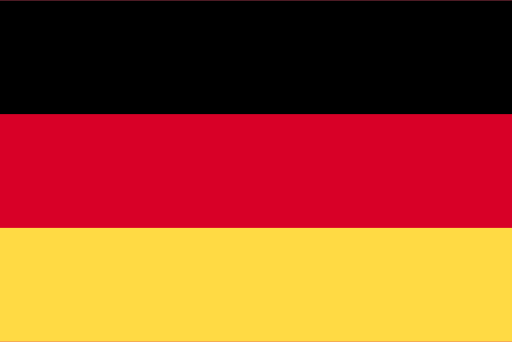For companies in the defense sector, entering emerging markets offers promising growth potential but also presents complex compliance challenges. As defense companies expand into high-growth regions in Latin America, Asia, and the Middle East, they must navigate diverse regulatory frameworks, address political and economic instability, and adhere to stringent international and local compliance standards. With the right strategies, defense firms can successfully manage compliance in these markets, mitigating risk while capitalizing on new opportunities. Paulson and Partners provides defense companies with specialized advisory support to ensure compliance with regulations, enabling smooth expansion in these high-potential regions.
1. Understanding Compliance Requirements in the Defense Sector
1.1 Key Regulations Governing Defense Exports and Trade
Defense companies operating internationally must comply with stringent export and trade regulations. Key frameworks include the U.S. International Traffic in Arms Regulations (ITAR) and the Export Administration Regulations (EAR), both of which govern defense exports and technology transfers. In the European Union, the Common Military List regulates the transfer of defense-related goods and technologies, requiring strict adherence to export controls. These regulations aim to prevent the proliferation of sensitive defense technologies and align defense exports with national security interests. For companies expanding into emerging markets, understanding these core regulatory frameworks is essential for maintaining compliance.
1.2 The Role of National Security in Compliance
Compliance in the defense sector is closely tied to national security concerns. Many countries restrict the export of specific technologies to safeguard sensitive information and protect national interests. For defense companies, this means adhering to strict guidelines on technology transfer, export licenses, and data protection, particularly in regions where strategic partnerships may involve sharing sensitive technologies. National security concerns can impact defense contracts in emerging markets, influencing the terms of agreements, restricting certain exports, and requiring thorough due diligence to assess potential compliance risks.
1.3 Regional Differences in Defense Compliance
Regulatory compliance varies significantly across regions, creating unique challenges for defense companies. For instance, Latin America and Asia have distinct export control standards and transparency requirements compared to Europe or North America. In the Middle East, compliance frameworks often align closely with strategic security alliances. Defense companies must adapt to each region’s specific compliance standards while balancing international obligations. Understanding these variations is crucial to successfully managing regulatory requirements in emerging markets, where inconsistent or unclear regulations may impact business operations.
2. Compliance Challenges in Emerging Markets
2.1 Complex Regulatory Environments and Legal Systems
Navigating compliance in emerging markets requires understanding complex and often opaque regulatory frameworks. In some regions, defense regulations lack the transparency and consistency found in more developed markets, creating challenges for foreign companies. Legal systems may be difficult to navigate, with varying degrees of enforcement and frequent regulatory changes. This makes compliance a moving target, requiring companies to stay updated on local laws and regulatory shifts that may impact defense contracts.
2.2 Political and Economic Instability
Political and economic instability in emerging markets presents additional compliance risks for defense companies. Political changes can result in sudden regulatory shifts or the suspension of defense contracts, while economic volatility can influence trade controls and affect the availability of export licenses. For example, trade restrictions or sanctions may be imposed abruptly due to diplomatic tensions, impacting defense companies with existing contracts in affected countries. Understanding the political landscape and preparing for potential instability are crucial for maintaining compliance.
2.3 Ethical Considerations and Anti-Corruption Measures
Emerging markets often present heightened risks for ethical and legal compliance, particularly in regions with high levels of corruption. Defense companies must adhere to anti-corruption laws, such as the U.S. Foreign Corrupt Practices Act (FCPA) and the U.K. Bribery Act, which prohibit bribery and mandate transparency in business dealings. In regions where corruption is prevalent, defense companies must implement robust anti-corruption measures, including regular audits, transparency in transactions, and strict adherence to ethical standards. Adopting these measures reduces legal risks and strengthens a company’s reputation, fostering trust with both clients and regulators.
3. Strategic Approaches to Navigating Compliance in Emerging Markets
3.1 Establishing Local Partnerships for Regulatory Insights
Forming partnerships with local entities can be instrumental in navigating regulatory challenges in emerging markets. Local partners bring valuable insights into the regulatory landscape, helping defense companies understand regional requirements and navigate bureaucratic hurdles. These partnerships can also aid in compliance by providing support for licensing, documentation, and in-country representation. Working with trusted local partners enables defense companies to establish a compliant operational framework tailored to the region’s specific requirements.
3.2 Leveraging Technology for Compliance Monitoring
AI and data analytics can streamline compliance processes, allowing defense companies to monitor and document compliance activities across multiple jurisdictions. Automated compliance tracking systems enhance efficiency by centralizing regulatory documentation and ensuring timely reporting, reducing the risk of human error and improving transparency. For example, AI-driven platforms can track export licenses, monitor for regulatory updates, and alert compliance teams to potential risks. By leveraging technology, defense companies can proactively address compliance requirements, ensuring adherence to both international and local standards.
3.3 Training and Capacity Building in Compliance
Training local teams on compliance standards is essential for effective risk management in emerging markets. Defense companies should invest in capacity-building programs to educate local personnel on regulatory requirements, ethical practices, and anti-corruption laws. Building compliance capabilities within local teams ensures that compliance standards are upheld at every level of the organization, reducing the risk of regulatory violations. Additionally, establishing rigorous internal compliance programs, including regular audits and reporting mechanisms, further strengthens a company’s compliance framework.
4. Case Studies: Defense Compliance Success in Emerging Markets
4.1 Compliance Strategies in Latin American Defense Markets
In Latin America, defense companies must navigate a mix of local and international regulations, often in countries with limited regulatory transparency. A notable case study involves a defense company operating in Brazil, where compliance with both local export controls and U.S. ITAR regulations was required. By partnering with local compliance experts and utilizing AI-driven tracking systems for export control documentation, the company successfully maintained compliance and secured multiple defense contracts. This example demonstrates how strategic partnerships and technology can support compliance efforts in challenging regulatory environments.
4.2 Technology Transfer and Compliance in Asia-Pacific
In Asia-Pacific, technology transfer controls are critical, particularly when forming partnerships with government agencies. For example, a defense company working in South Korea implemented stringent compliance protocols to adhere to local and international export control laws. By conducting thorough due diligence on technology transfer partners and ensuring secure data handling processes, the company mitigated compliance risks associated with sensitive technology sharing. This case highlights the importance of compliance in technology transfer agreements, a key requirement in many Asian defense markets.
4.3 Managing Compliance Risks in Middle Eastern Markets
The Middle East presents unique compliance challenges, often linked to export restrictions and security partnerships. A defense company engaged in a contract in the United Arab Emirates implemented enhanced compliance monitoring to manage regional export control requirements and adapt to fluctuating trade restrictions. By using a dedicated compliance team and maintaining a transparent relationship with local regulators, the company ensured that its operations met stringent regional standards. This approach underscores the importance of proactive compliance management in markets with dynamic regulatory environments.
5. Future Outlook for Defense Compliance in Emerging Markets
5.1 Emerging Compliance Trends in Defense Technology
As defense technology evolves, new compliance challenges are emerging. Regulations surrounding cybersecurity, data sovereignty, and AI are becoming more stringent, particularly in markets with complex data protection laws. Defense companies must stay abreast of these trends, adapting their compliance frameworks to meet evolving regulatory standards. Addressing cybersecurity and data protection requirements is increasingly critical for compliance in digital defense solutions, where data security is paramount.
5.2 Shifting Trade Alliances and Regional Cooperation
Shifts in trade alliances and regional cooperation are expected to impact defense compliance requirements in emerging markets. Trade agreements and defense partnerships, such as those within APEC and the Gulf Cooperation Council (GCC), are creating unified regulatory frameworks that influence defense trade. These alliances can facilitate compliance by standardizing requirements across multiple countries, simplifying export controls for defense companies operating regionally. Staying informed about trade and regulatory shifts enables companies to anticipate changes and adjust their compliance strategies accordingly.
5.3 Long-Term Compliance and Risk Management Strategies
For defense companies operating in emerging markets, developing a long-term compliance strategy is essential. A comprehensive risk management approach—incorporating local partnerships, continuous training, and advanced compliance monitoring—can help companies maintain compliance as regulations evolve. Additionally, defense companies should prioritize building flexible compliance frameworks that can adapt to regulatory shifts, allowing them to respond swiftly to changes in the geopolitical landscape. Long-term compliance planning ensures companies remain competitive while effectively managing regulatory risks in diverse emerging markets.
Conclusion
Compliance in the defense sector is increasingly complex, especially for companies expanding into emerging markets with varied regulatory environments. Successfully navigating defense compliance requires a proactive approach, including forming local partnerships, adopting technology for monitoring, and building internal compliance capacity. Paulson and Partners supports defense companies in managing compliance challenges in high-growth markets, providing expert guidance to help companies achieve operational success while adhering to local and international regulations.
As defense companies look to expand their global presence, effective compliance strategies will be key to minimizing risk and securing sustainable growth in emerging markets. For defense firms ready to navigate the intricacies of international compliance, Paulson and Partners offers the insights and support needed to thrive in this dynamic sector.


 EN
EN DE
DE









